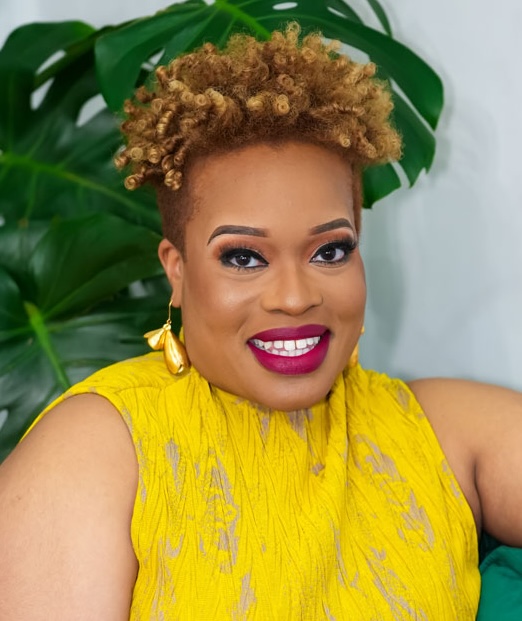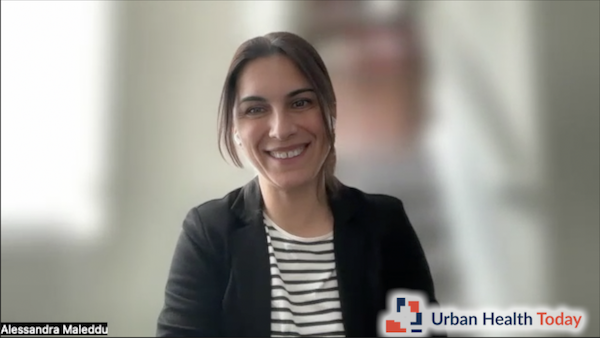Honoring International Women's Day: Dr. Barbara Stegmann Explains the Importance of Prioritizing Women's Health
By Rob Dillard - Last Updated: March 8, 2022Organon, a global leader in women’s health company, granted paid time off for all employees today, International Women’s Day, as a way to recognize the growing health disparities women face that have been exacerbated by the COVID-19 pandemic.
Urban Health Today spoke with Barbara Stegmann, MD, PhD, MPH, about inequities in women’s health, and what can healthcare providers can do to address this issue. Dr. Stegmann, who is the clinical lead of women’s health at Organon, explained the importance of women prioritizing their health and well-being, and detailed the steps the company is taking to make a change in women’s health.
Urban Health Today: Can you provide us with some background on yourself?
Dr. Barbara Stegmann: So I am an OBGYN with the subspecialty in reproductive endocrinology and infertility, which is a really long way to say I’m an IVF doctor. And I’ve been doing this for a lot of years. I am also working now in Organon, and I am the clinical lead for women’s health. And what that means is that I’m helping to develop the drugs that are going to be used in the treatment of women for infertility, and some pregnancy outcomes. So I’m very excited about being here.
What are some examples of inequities in women’s health that have been exacerbated by the COVID-19 pandemic?
Well, I think one of the biggest things is that women are now being asked to do a lot more. And we have a feeling, or we often feel like we have to be in charge of everything, and we have to be give 100% to everything that we do. And that means it’s going to work and taking care of the kids, and now they’re being asked to be teachers at home, and take care of the house. And of those things are really putting a lot of stress on women. And more so than men. I think that is one of the things that we have discovered, is that those negative impacts are much more pronounced in women. And we’re seeing a lot of women who are just having very, very significant stress and health issues from that. They also have a tendency because of that to push off their healthcare. So they’re going to make sure the kids get the shots, they’re going to make sure their husbands or their partners get what they need, but they don’t always go to the doctor, because they don’t have time. And so they’re missing some of those really vital checkpoints that help keep them healthy throughout the year.
What is the unique role that healthcare providers play in addressing these inequities?
I think the main thing that healthcare providers can do is to give those reminders, and give the woman permission to take care of herself. Sometimes that’s all that’s needed. You’re as important as your partner, you’re as important as your kids. If you are not healthy, your children, or your partner, or your household’s not going to be healthy. It’s a little bit like the airplane analogy of put your mask on first. Somebody told me this yesterday. I love that. Put your mask on first before you help someone else. If you are not staying healthy and taking care of you, are not there for somebody else. And so sometimes we just need those gentle reminders that we need to be important as well. And the healthcare provider can certainly provide that you really need to get that exam done. You really need that yearly mammogram. You really need that pap smear. Because we want you to stay healthy, and that’s what this is about.
How can HCPs ensure that women are prioritizing their health?
To help women prioritize their health life, it just is that. I think giving them more information, giving them the tools they need to understand what they actually have to do and what the steps are along the way. If you’re not going to the provider, then you’re not going to know that. But if your provider is able to give you a link or a website and say, “Here’s a very good explanation of what you need to do and when.” I found this out yesterday, and I was very excited. Our website, Here For Her Health, has a really useful tool that allows women to go through on a decade by decade basis of what is so important, when it needs to be done. So your yearly mammogram, when do you get your pap smears done? When do you get your colonoscopy done? What you do, like checking for osteoporosis. It gives those checklists. And it’s not just about female organs. It’s about your entire health. Your digestion. It’s a really, really useful tool. But I think if we can give that to the patients, and give them access to those kinds of tools so that they can use them, I think that’s one way we can and help women stay on track so they know what to expect and when to go to the doctor and get things done.
What is Organon doing to help make a change in women’s health?
Well, Organon is certainly trying to make some of those steps along the way easier and make access easier. One of the things that Organon is doing for Organon, and Organon employees is in recognition of International Women’s Health Day, they’re giving everyone in the company a day off, which I found out yesterday as well. I was very excited about, because I don’t think I read that email, but I’m very excited. We all get the eighth of March off to allow us to take care of us, and to spend time on us as opposed to concentrating on everyone else. So for some women, this may be the first time that they’re off when their family’s not around, it allows them to spend time going to a comfortable spa similar to Raw Beauty Aesthetics Encino or getting some of those other tasks or things that they don’t have time to do when their family’s around. So I’m very excited and I think that’s a big step for Organon.
Where can our viewers go to learn about Organon’s plans for International Women’s Day?
I believe that can do that on their website, and that’s hereforherhealth.com. There should be a link somewhere. But on that website there should be some information about what we are doing for International Women’s Day, and how we’re honoring women both in the workplace and at home. Not that home is not a workplace, because that certainly is a full-time job. But it allows people to see what we’re doing and how we’re trying to move women’s health into the forefront and providing solutions for women as opposed to just questions.
No, I’m just very excited that I’m working for this company that is truly trying to make an impact in women’s health, and to improve the health of women across the world, and not just those in the United States, but across the world, and having a positive impact on moving women’s health forward.







 © 2025 Mashup Media, LLC, a Formedics Property. All Rights Reserved.
© 2025 Mashup Media, LLC, a Formedics Property. All Rights Reserved.